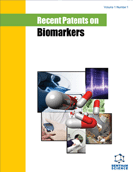Abstract
We examined the prognostic performance of measurements of cTnT concentrations at admission compared to discharge, in predicting major cardiovascular events during hospital admission and at six months follow-up. Methods and Results: The study population comprised 1351 patients with AMI and a mean age of 57.5 + 11.4 years, of whom 66% were males. Cardiac TnT was measured on admission, 24 hours, and at discharge using the Elecsys 2010 [Roche Diagnostics]. No significant difference was found in patients who were cTnT negative on admission [n = 345 (26%)] compared to the cTnT positive group [n = 1006 (74%)], with respect to baseline characteristics, infarct pattern, biochemical data, and major cardiac events. In 475 patients [35%], serum cTnT levels were found to be higher on discharge from the CCU compared to admission/24 hour levels. A significantly greater proportion of patients had hypertension [63% vs. 50%, p < 0.001], higher systolic blood pressures [133, IQR 115 -154 vs. 127, IQR 111 -147, p < 0.001], history of previous AMI [17% vs. 9%, p < 0.001], and previous angina [17% vs. 9%, p = 0.001] if the discharge cTnT levels exceeded the admission/24 hour levels. A total of 120 deaths occurred during the study period with a significantly greater number of deaths recorded in patients whose discharge cTnT levels were higher than the admission/24 hour values [54(11%) vs. 66 (8%); p = 0.02, respectively]. Multivariable analysis using logistic regression showed that cardiogenic shock [OR 5.92 {95% CI 2.86 - 12.28}; p < 0.001], cardiac failure [ OR 4.80 {95% CI 2.61 - 8.82}; p < 0.001], cerebrovascular accident [ OR 3.95 {95% CI 1.48 - 10.58}; p = 0.01], complete heart block [ OR 3.50 { 95% CI 1.22 - 10.09}; p = 0.02], increasing age [ OR 1.04 {95% CI 1.02 - 1.01}; p < 0.001], and a greater discharge cTnT value [ OR 1.61 (95%CI 1.01 - 2.56); p = 0.04] conferred a significantly higher odds of mortality. Conclusions: This study shows that, in addition to cardiogenic shock, cardiac failure, cerebrovascular accident, complete heart block, and increasing age, higher cTnT level at discharge is an important independent predictor of mortality in patients with AMI, and could further improve the prognostic accuracy of admission values of cTnT, based on relevant patents.
Keywords: Acute myocardial infarction, adverse events, cardiac failure, cardiac mortality, coronary angiogram, troponin T.
 20
20

